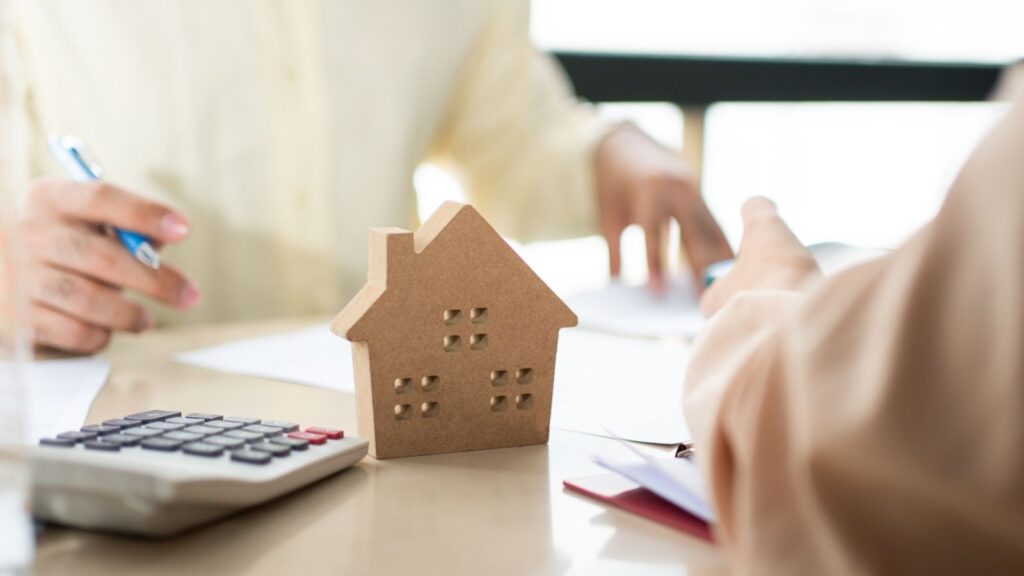Buying a house is a humungous financial investment, and there are costs and expenses tucked throughout the homebuying experience that you might not expect. Here are some fees to consider when buying a house.

Earnest Money Deposit
An earnest money deposit, or EMD, is money you put in with your offer to a seller to indicate that you’re committed to the purchase. This deposit amounts to about 1-3% of the offer price you’re submitting and is a cash-out-of-pocket expense. If the seller accepts your offer, that money goes into an escrow account where it stays saved until you close on the property, at which time it applies toward the purchase. To sum up, if you’re looking at purchasing a house that’s $250,000, your earnest money deposit would come to between $2,500 and $7,500. Of course, the higher your earnest money deposit, the more potential influence it has on the seller.
Down Payment
The next hefty chunk of change coming out-of-pocket as a cash expense is the down payment on your new house. While some loans offer lower down payments if you qualify, the most common type of loan, the conventional loan, requires a down payment of about 20% of the purchase price of the house you’re buying, and the lender finances the rest. Looking at that same $250,000 home, your down payment would be about $50,000 in cold, hard cash.
Closing Costs
Closing costs is a term that encompasses all of the various fees, costs, and expenses that go into your real estate transaction. Closing Costs average between 2-5% of the home’s value, putting you at about $5,000-$12,500. Many buyers aren’t aware of closing costs when heading into the homebuying journey, which can cause a few hiccoughs along the way.
In some cases, lenders may be willing to allow you to roll your closing costs into your home mortgage loan, but if so, you’ll pay a much higher interest rate, raising your monthly mortgage payments.
You may also be able to negotiate some or all of your closing costs with the seller if the real estate market is favorable to buyers. A seller may be willing to take on some closing cost expenses to seal the deal if a seller is eager. This willingness to cover some costs isn’t always the case, so check with your real estate agent before negotiating closing costs.
You can also potentially lower closing costs by shopping at different lenders. It’s the lender that determines a significant portion of those costs. Before choosing a lender, shop around and get estimates of what closing costs you’ll pay. This comparison shopping can help you choose a lender who better matches your budget.
Here are some closing costs you can expect to pay:
Application fee: This is the fee the lender collects to process your application for a home mortgage loan.
Credit check: Lenders will inquire with the credit bureaus to determine whether you qualify. You pay for this credit check.
Loan processing fees: Someone must process your application, review your credit, gather your documents, and determine if you qualify. For this, you’ll pay loan processing fees.
Underwriting fees: Once you qualify, another person called an underwriter must prepare the legal loan documents and contracts outlining the terms of your agreement.
Attorney: Some states require buyers to hire a real estate attorney to oversee the transaction. Even when it’s not a legal requirement, you may work with an attorney to ensure your interests are protected.
Title check: County clerks will review the title of the house to ensure it’s free of any tax holds or liens that would prevent it from legally being sold.
Title transfer: You’ll also pay a fee for transferring the title from the seller’s name to yours.
Home inspection: The lender requires a home inspection to ensure that the house you’re buying is in good standing, free of pests, and has no significant issues, such as plumbing, faulty wiring, cracked foundation, or failing roof.
Home Appraisal: The lender also wants to know that the house you’re buying is worth at least as much as you’re borrowing, so there’s a mandatory appraisal done on the house to determine its fair market value.
Homeowner’s Insurance: The lender also requires that you obtain homeowner’s insurance on your property, which you pay for in advance, and the bank pays on your behalf in your mortgage payments. Depending on where you live, you may also have to obtain fire or flood insurance.
Escrow Agents: You’ll also be footing the bill for escrow agents. An escrow agent is a person who handles all of the funds and paperwork until the closing day, when everything is signed and paid.
Property taxes: For as long as you own your home, you’ll pay property taxes. Like with homeowner’s insurance, this is collected in advance by your mortgage company and paid on your behalf to ensure compliance.
HOA fees: If the house you’re purchasing is part of a homeowner’s association, you’ll also pay those fees upfront.
Points: points are a form of pre-paid interest. The more points you purchase, the less interest you pay and the lower your monthly payments are. One point equates to 1% of the loan amount.
Moving Expenses
In addition to your earnest money deposit, down payment, and closing costs, you’ll also need to consider your moving expenses. You may need to invest in supplies like moving boxes, packing tape, foam or bubble wrap, and other necessities. Additionally, you may need professional movers, a moving truck, and depending on where you’re moving to, fuel and lodging for the journey ahead. These expenses also don’t consider anything you might need for your new home, such as furnishings, window dressings, kitchen supplies, etc.
An Emergency Fund
It’s also a brilliant idea to set aside a nest egg, an emergency fund, just in case of unforeseen expenses. Emergency funds could include temporary unemployment when you still need to pay your bills or maintenance and repairs for your house that need immediate attention, such as a broken water heater or a leaky roof.
Conclusion
There are many factors to consider when determining your homebuying budget and calculating the potential costs. Talk with your professional local real estate agent today to learn more about the hidden costs of buying a house.
